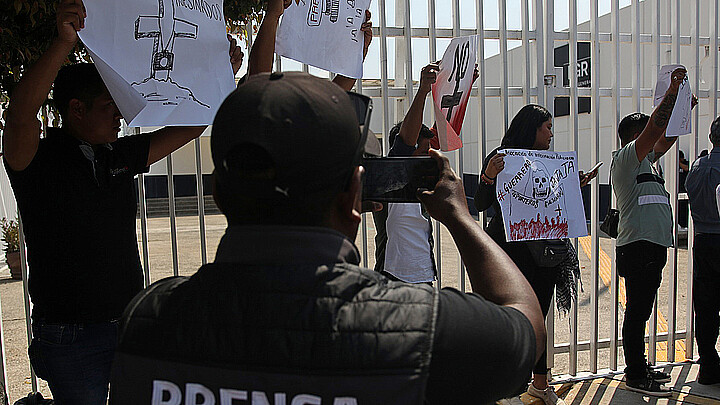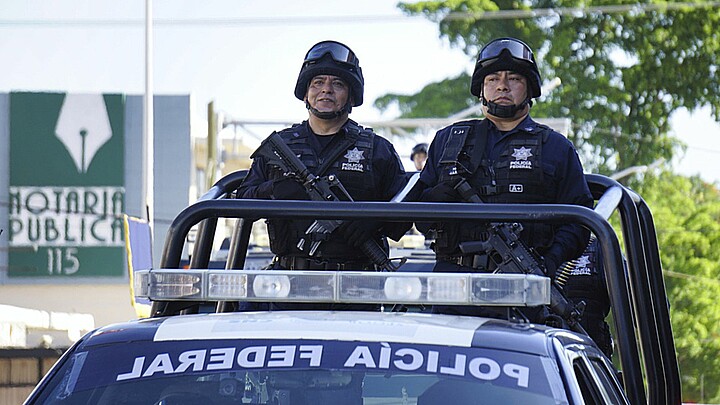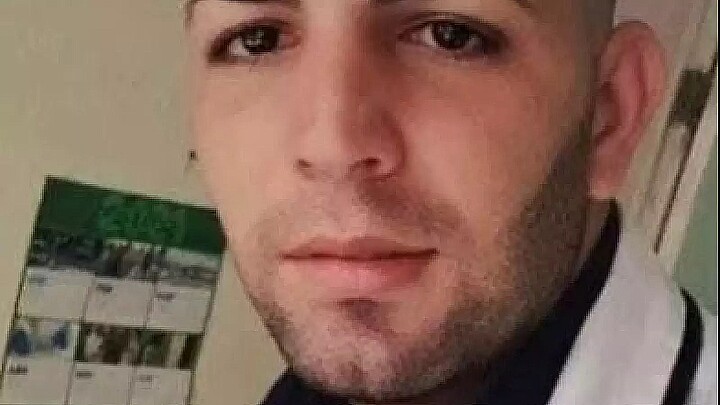Crime
Mexican mayor assassinated on election night becomes latest casualty amid growing cartel dominance
The Jalisco New Generation and Sinaloa cartels now have a presence throughout the United States in all 50 states, according to a report prepared by the U.S. Drug Enforcement Administration (DEA), saying that the two organizations “are at the heart of the [fentanyl] crisis” and effectively eliminated any competition in U.S. markets

June 5, 2024 8:07am
Updated: June 5, 2024 1:02pm
Monday night, Cotija Mayor Yolanda Sánchez left a gym on a public street, and walked alongside her bodyguard when men armed with assault rifles suddenly shot at them from a moving car.
The pair were seriously injured and transported to a nearby hospital where doctors learned the local town leader had been shot 19 times. She was pronounced dead by 9:30 p.m. local time, according to the EFE Spanish news agency.
Sánchez was elected mayor in the 2021 elections by the conservative National Action Party (PAN) and was the first woman to hold that position in Cotija. The municipality, located in the Mexican state of Michoacán, and on the border of Jalisco, is one of the most violent in the country.
In September of last year, she was kidnapped in Zapopan, Jalisco, but released three days later.
Local media reported that her kidnappers belonged to the Jalisco New Generation Cartel (CJNG) and targeted her for opposing the criminal group’s growing influence over local police.
Hours after her, death reports surfaced with a swirl of speculation about who was responsible for her murder. One theory, taken up by El Universal, suggested that behind the armed attack was a criminal cell called 'Calaveras', linked to the CJNG.
The Jalisco based cartel primarily operates in a nearby area known as the 'Death Row', which covers the municipalities of Cotija, Villamar, Jiquilpan, Venustiano Carranza, Marcos Castellanos, Sahuayo, Briseñas, Vista Hermosa, Zamora, Pajacuarán, Chavinda , Tangamandapio and Jacona.
The CJNG and its neighboring Sinaloa cartel have a presence throughout the United States in all 50 states, according to the 2024 National Drug Assessment prepared by the U.S. Drug Enforcement Administration (DEA), saying that the two organizations “are at the heart of the [fentanyl] crisis.”
“The scope of the Sinaloa and Jalisco cartels’ control overreach segment of the criminal drug trade has effectively eliminated any competition in U.S. markets, and enabled cartel members to establish a presence in every U.S. state” the report says.
“Together, the Sinaloa and Jalisco cartels have caused the worst drug crisis in U.S. history. They dictate the flow of nearly all illicit drugs into the United States, and their dominance over the synthetic drug trade in particular is evident in the relentless stream of illicit fentanyl and methamphetamine crossing the border toward U.S. markets.
"The ease and low cost of producing these drugs on a large scale in Mexico makes them highly profitable. The crystal methamphetamine peddled by the cartels is more potent and cheaper than at any other time in the past decade.”
The report says that the two cartels have also disguised the deadly fentanyl drug “in pill form to mimic trademarked prescription medications,” warning that many Americans are buying the drug under the mistaken belief they are buying “legitimate prescription drugs.”
While the two organizations are considered the most powerful and dangerous in Mexico and the United States, they are also “active in over 40 countries in South America, Asia, Europe and Africa” the report says, attributing activities of arms trafficking, money laundering, migrant trafficking, sex trafficking, bribery, extortion and other crimes throughout the world.
The DEA document also stated that the carte had directed attacks against the Mexican military and law enforcement apparatus and compromised members of the country’s judiciary.
“The Jalisco Cartel manufactures and traffics drugs with relative impunity in some parts of Mexico by bribing and intimidating government, military, and law enforcement officials at all levels. Since its formation over 10 years ago, the Jalisco Cartel has directed some high-profile attacks against the Mexican military and police, including the downing of an army helicopter that killed six soldiers, and the attempted assassination of the Mexico City police chief, and even conducted an attack against the Guatemalan president’s convoy when it was touring the Guatemala-Mexico border region. The Jalisco Cartel is also implicated in the bribery of judges,” the report adds.
In the United States, federal agents and prosecutors have declared war on the cartels issuing indictments against their operatives in Illinois, New York and Washington, D.C. The Justice Department has also successfully convicted and imprisoned Sinaloa drug lord Joaquin ‘El-Chapo’ Guzman-Loera, and Mexican authorities arrested and extradited Ovidio Guzman-Lopez to the U.S. last year.
On April 23, the U.S. Attorney's Office in the Northern District of Texas announced drug trafficking sentences were imposed between 4 and 40 years for a dozen agents of the CJNG.
Yolanda Sánchez Figueroa is the most recent victim of violence against Mexican politicians, which intensified during the electoral process that ended this weekend.
Thirty seven political candidates were murdered, and dozens of others were attacked, according to reports published by ADN America and the BBC.










